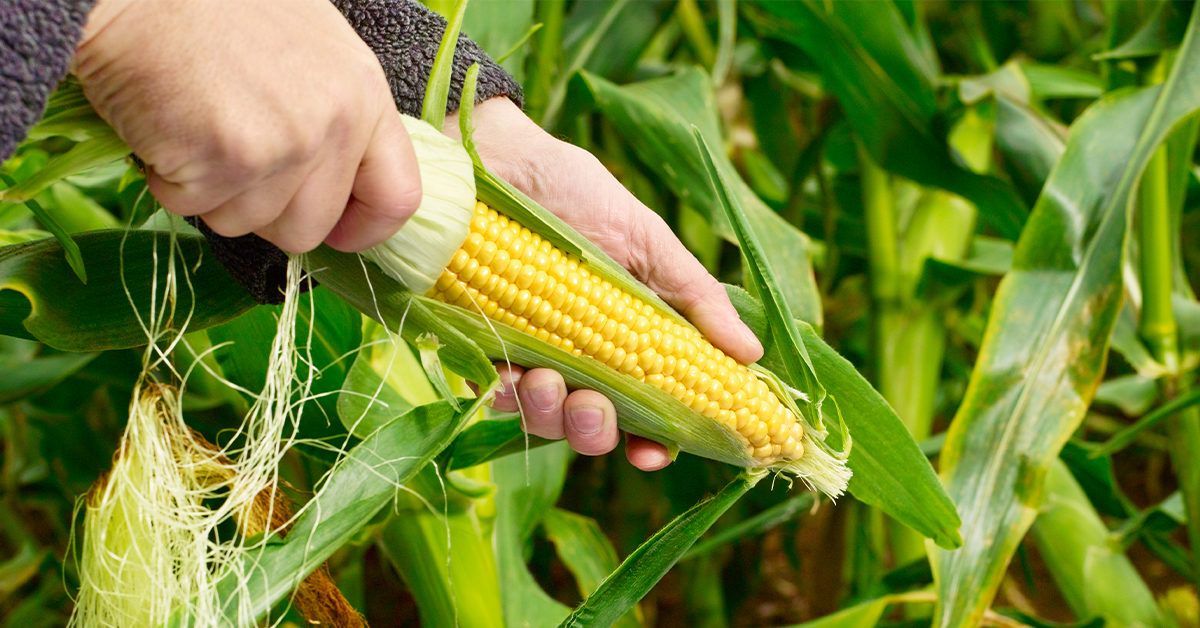Pros and Cons of GMO Foods: Backed by Evidence
What are GMOs?
GMOs, or genetically modified organisms, are food items that have been made using genetic engineering techniques. These techniques involve the alteration of an organism’s DNA to introduce new traits or characteristics. In the food industry, GMO crops have had genes added to them for various reasons, such as improving their growth, nutritional content, sustainability, pest resistance, and ease of farming.
Advantages of GMO Foods
GMO foods may offer several advantages to the grower and consumer. These can include:
- Pest control: Many GMO crops have been genetically modified to express a gene that protects them against pests and insects. This reduces the need for pesticides and makes farming easier and more cost-effective.
- Fewer pesticides: A 2020 study notes that GMO technology has reduced global chemical pesticide use by 8.3% and indirectly reduced greenhouse gas emissions because farmers don’t need to spray their fields as often.
- Improved survival and greater yield: Other GMO crops have been modified with genes that help them survive stressful conditions, such as droughts, and resist diseases like blight, resulting in a higher yield for farmers.
- Increased nutritional value: Genetic modification can increase the nutritional value of foods. For example, rice high in beta carotene, also called golden rice, was developed to help prevent blindness in regions where local diets are chronically deficient in vitamin A.
- Enhanced flavor: Genetic modification can enhance the flavor and appearance of foods, such as the non-browning apple.
Disadvantages of GMO Foods
However, the Food and Drug Administration (FDA), Environmental Protection Agency (EPA), and USDA maintain that GMOs are safe for human and animal consumption. While GMO crops make farming much easier, there is some concern about their potential effect on the environment and their safety for human consumption, particularly surrounding illnesses and allergies.
Some of the potential concerns around GMO consumption include:
- Allergies: Because GMO foods contain foreign genes, some people worry that they harbor genes from foods that may prompt an allergic reaction. Research suggests GMO foods are no likelier to trigger allergies than their non-GMO counterparts.
- Cancer: Because cancers are caused by DNA mutations, some people fear that eating foods with added genes may affect your DNA. The American Cancer Society has stated that there’s no evidence to link GMO food intake to an increased or decreased risk of cancer, and there is no evidence that eating GMOs will change your DNA. However, more long-term human research is still needed.
- Herbicide use: Most GMO crops are resistant to herbicides, such as Roundup, so farmers may use herbicides to kill surrounding weeds without damage to their crops. However, Roundup and its active ingredient glyphosate are subject to controversy because animal and test-tube studies have linked them to various diseases.
- Honeybees: There has also been concern that pollen from Bt crops may negatively impact honeybees, but there doesn’t seem to be any solid evidence to support this yet.
Labeling and Regulations
In the United States, no regulations currently mandate the labeling of GMO foods. However, as of January 2022, the USDA requires food manufacturers to label all foods containing GMO ingredients. This label will display either as the USDA bioengineered food symbol, listed on or near the ingredients, or as a scannable code on the package with directions, such as "Scan here for more information."
GMO vs. Organic
It’s also worth noting that no food labeled "100% organic" contains any GMO ingredients because U.S. law prohibits this. However, if a product is simply labeled "organic," it may contain some GMOs. In the European Union (EU), foods with more than 0.9% GMO ingredients must be listed as "genetically modified" or "produced from genetically modified [name of food]."
Conclusion
GMO foods are a topic of ongoing debate, with some people advocating for their use and others expressing concerns about their potential impact on human health and the environment. While current research suggests that GMO foods are safe for consumption, more long-term human studies are needed to fully understand their effects. As consumers, it’s essential to stay informed about the foods we eat and make informed choices about our diet.
FAQs
Q: What are GMOs?
A: GMOs, or genetically modified organisms, are food items that have been made using genetic engineering techniques.
Q: Are GMO foods safe for consumption?
A: While current research suggests that GMO foods are safe for consumption, more long-term human studies are needed to fully understand their effects.
Q: Why are GMO crops used?
A: GMO crops are used to improve their growth, nutritional content, sustainability, pest resistance, and ease of farming.
Q: Are GMO foods labeled?
A: As of January 2022, the USDA requires food manufacturers to label all foods containing GMO ingredients.
Q: What is the difference between GMO and organic?
A: No food labeled "100% organic" contains any GMO ingredients, but foods labeled simply as "organic" may contain some GMOs.
Recommended Products:
-

Integrative Therapeutics Berberine – 1000–1500 mg Daily – Berberine HCL Supplement for Metabolic Support* – Gluten-Free & Vegan Supplements for Men & Women – 60 Capsules
$147.99 Buy Now -
Sale!

Saw Palmetto for Men Gummies – Saw Palmetto Supplement and DHT Blocker for Hair Health & Male Patterned Balding – Saw Palmetto Hair Supplement for Men – 60 Raspberry Vegan Mens Hair Gummies
Original price was: $18.99.$17.09Current price is: $17.09. Buy Now -
Sale!

Quercetin 500mg Supplement with Sambucus Elderberry, Bromelain, Vitamin C, Zinc 50mg, & Vitamin D3 5000 IU – Antioxidant & Immune Health Support Zinc Quercetin – 6 in 1 Black Elderberry Supplement
Original price was: $22.99.$19.49Current price is: $19.49. Buy Now



